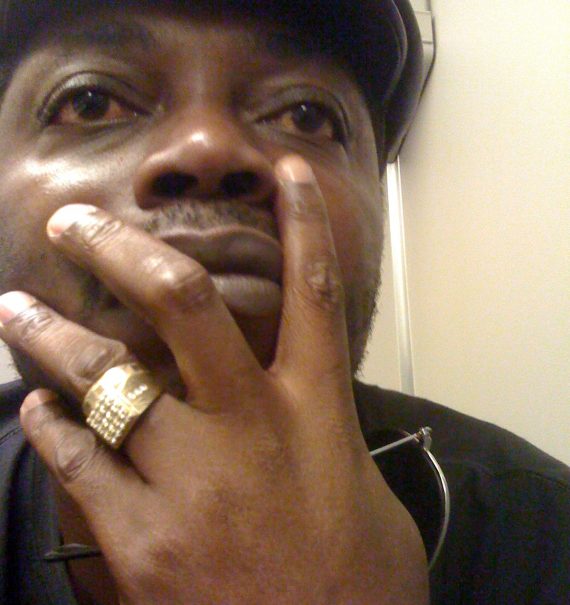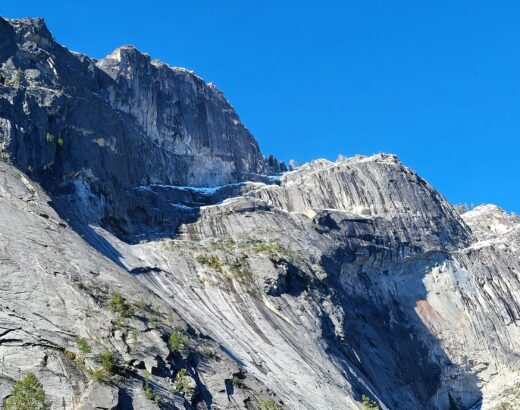The Power of Geography
Ten Maps That Reveal the Future of Our World

Geography is not fate – humans get a vote in what happens- but it matters.
Tim Marshall
Bimbo’s Take:
Tim makes this important statement on page Page xv to remind us that we don’t get a seat at mother nature’s table when she decides on where to place us and what resources to bequeath to us. However, mother is not that wicked as she does allow us to determine what we want to do with where and what we have gotten. It is at this point that our creativity, resilience and diligence are to be brought to make the best use of what we have. After all, we have been told that if we have been given lemons, we should hurry up and make lemonades. It is no good, sitting and wailing that all we have are lemons while others have oranges, is it?
“The British are coming, the British are coming.”
Paul Revere (attrib)
Bimbo’s Take:
It was said that the sun never goes down on the British Empire. It had not always been like that.
It started gradually, when the British arrived at the shores of different nations and, through diplomacy, often enforced with guns, took over. On page 115, Tim Marshall quoted the outcry by Paul Revere to announce that, once again, the British are coming. This time, having exited the EU, the UK is looking to forge new alliances.
Since history like to taunt us, we should have learnt one or two things from it. Given that the earlier arrival of the British led to colonization across the spectrum, shouldn’t we all be wary? Tim, ends the chapter, on page 152, by saying “….the British are coming again – to as many places as they can. Post-empire and post-Brexit, they will try to come as friends and equals. It won’t always be friendly, or equal.“
I do agree with this conclusion and we cannot sleep with our eyes closed trusting in the good nature of the British, as our fore-fathers did and regretted.
… our geopolitical struggles are now breaking free of our earthly restraints and being projected into space. Who owns space? How do you decide? … if I want to place my laser-armed satellite directly over your country, by what law do you say I can’t?
Tim Marshall
Bimbo’s Take:
The issue of ownership of space has continued to be of concern to me. It reminds me of the position that I had expressed on May 6th 2020 on my Facebook page on a related issue – the moon:
While our ancestors slept, the Berlin Conference of 1884 was held to “balkanize” Africa amongst the Europeans to legalize the pillage of Africa’s abundant valuable resources.
Today, the United States is developing a blueprint (The Artemis Accord) on ownership and mining of the resources on the Moon and we are sleeping.
By the time we or our kids wake up, it would be time to share in the collective burden of the pillage of the Moon while the US would have harnessed all the benefits.
For those with doable ideas of what we can do individually to be part of the discussion on the management of a collective this space resource , while our government remains docile, please inbox me with such.
Remember, the Amazon is in South America but Europe and the US have never gotten off the back of Brazil on how that resource is being managed because of the contentious believe that it accounts for 20% of our Oxygen. Now, think about the Moon in this light.
In the characteristic nature of Americans, one American friend of mine felt this is a non-issue by commenting “Pretty hard to oppress or pillage a rock in space. I am not sure this is worthy even of this comment.” the problem with the response is that he doesn’t see the moon (space, in the context of this book) as a collective resource for which accountability to all humanity is needed. I tried to clarify and educate him on this by responding :
“It is not about oppression or pillaging of the rocks on the moon. It is about the probable after-effect of the mining on the wellbeing of the moon and the social cost that all nations will end up bearing, if things go wrong.
The point is, a collective resource like the moon, needs to have all involved in managing its development. The world (and funny, the US backed out of the Kyoto Accord) is struggling to manage emissions of greenhouse gasses and its effect on global warming. From where I sit, the Industrialized nations actions brought about global warming and asking developing countries to curtail the use of technologies and resources (same as has been used by the Industrialized nations) in their development is injustice.
Back to the moon, we simply don’t know what the fall out of the planned mining activities will be on tides and other patterns on Earth. So the right time to cry out is now. We don’t want to end up sharing in the clean up cost.“
Thank goodness, I was not alone. My sentiments were shared by another friend, who wrote:
“Between the US, China and Russia, they will pillage the moon and anywhere else they can get to, and our own children and grandchildren who knew nothing about it will be asked to pay the collective price in the future. It’s the way of the world. We will need to beat them or join them.
Unfortunately, as you lamented, our own leaders in Africa and the developing world are sleeping. Even when we don’t have the technological ability to join them now, our leaders should be shouting themselves hoarse, and throwing as much tantrums as possible, to register our concerns and position about what’s being planned for the moon and our other collective patrimony, including the arctic here on earth.”
It is a sorry tale of one side seeing the other as having no rights; indeed, many colonists regarded the Aboriginals as barely human. Page 12
Thanks to the ‘gold generation ‘ , Australia’s population….gradually started to become ethnically and culturally diverse. Page 15
the Immigration Restriction Act, which became known as the ‘White Australia ‘ policy. ….Any person who when asked to do so by an officer fails to write out at dictation and sign in the presence of the officer a passage of fifty words in length in an European language directed by the officer ‘ Page 17
Tim Marshall
Bimbo’s Take:
Australia is, arguably, the most ethnically diverse country in the world. I have lived here and in my state nearly 62% of the residents have one or both parents born outside Australia. Yet, this has not eliminated racial labelling and discrimination. It exists, it is subtle and it hurts!
In my trips across the nation, I have seen this first hand. I saw it in Alice Springs, where the team of fellow travelers I was with had some not so printable comments for the Aborigine folks there. It was also there as we cross the Great Central Road and met an Aborigine couple in need. I witnessed this first hand when a ‘tradie’ that I had invited to work in my house called me names telling me to “go back to your country” little realizing that we own the country together and that he too is an immigrant! Surprisingly, I also have a British friend who felt being maligned and discriminated against. His main grouse was being called a ‘pom’ .
Overall, all said and done, no nation is entirely free of racial prejudice. While Australia has gone to great lengths to curtail and correct these, it will be a disservice to feign that discrimination does not exist in Australia! It is there and glaring. I guess opportunities exists and the nation will keep working on managing it.
Understanding the history and demographics of the Fulani is a key to understanding the current issue, especially as large numbers of Fulani are involved in the insurgencies. Their history, geographical distribution and cultural practices have had a major impact on the crisis. The Fulani are a nation without a state. There are at least 23 million of them spread across the Sahel, the West African coast and as far south as Central African Republic. ……
There have been Fulani empires even though the people are mostly nomadic herders who have always seen the region as an entity in which they roam and not divided into nation states requiring pieces of paper to move from one place to another. That they once ruled the area is a fact deeply embedded in their collective memory; the Macina Empire (1818-62) is considered a golden age……..
Prior to Macina the Fulani had been vassals of other empires, a fact they have not forgotten. Conversely, the collective memory of many of the non-Fulani sedentary communities is that the Fulani are a bellicose people who, when they had power, enslaved huge numbers of them. This was the case, especially among the non-Muslim population. The current tensions across the Sahel can partly be traced to this history: people equate the rise of jihadism among the Fulani with them seeking to re-establish their empire and convert Christians…….
The weakness of the state and perceptions of injustice act as recruitment officers among the Fulani populations……..
…..Similar themes emerge in each outbreak of violence as drought makes the land increasingly arid and unfit for grazing cattle and sheep, these nomadic people move into new urban and rural areas, where they’re seen as outsiders and their interests clash with others such as farmers, leading to violence on all sides. In this one of the major driving factors is climate change, and, just like terrorism, it has no regard for borders.
….the nomads, whose herds die without fodder, cannot always wait for grassland and trees to mature, and in places the cycle begins anew in terms of both desertification and violence……..
Education would help to reduce the rate but it is expensive,……many women have little or no access to contraception……Pages 242 to 247
Tim Marshall
Bimbo’s Take:
I think this is an interesting piece for understanding the crisis in Nigeria. It shows the call for a strict control of the borders will be a wasteful effort in the face of an opponent that doesn’t understand borders. More so, as a nation, without a state, it also become necessary that vigilance is exercised in the various sporadic clashes, especially in the middle-belt of Nigeria, where many are being reported killed and their lands being grabbed. This might be an indication of a coordinated attempt at forming a nation state.
Tim threw attention to three things, that we should keep in front of us –
1. The Fulani’s DNA is hard-wired with the born-to-rule syndrome;
2. The Fulani remember visibly their past experience as vassals of other empire and
3. Non-Fulani’s that have lived through Fulani colonization never found it funny and neither have they forgotten
These three points are a potent elixir for crises and it will take concerted efforts based on understanding of each to find a solution that keeps the Fulani at peace with their neighbours across the vast Sahel Savannah.
The Nile is the very life blood of the country and its people; no Nile – no Egypt. Eighty-five percent of the Nile’s flow into Egypt originates from the Blue Nile, and now the Ethiopians have their hands on the tap. It’s not that Ethiopia intends to cut the flow completely, it’s just that it will have the power to do so
Tim Marshall
P284
Bimbo’s Take:
Just thinking about this, my mind goes to those who are calling for a split of the Nigerian state. The Northerners have severally made the arguments that they are justly entitled to the oil wealth from the Niger Delta. In their words, the fossilized deposits were from teh River Niger which flows through their domain.
The question needs be asked, what happens to the southern Nigeria states if the Northerners switch off the tap of River Niger? Some food for thought there and maybe a good reason for us all to come to the round-table to discuss rather than think that each is better off without Nigeria.











